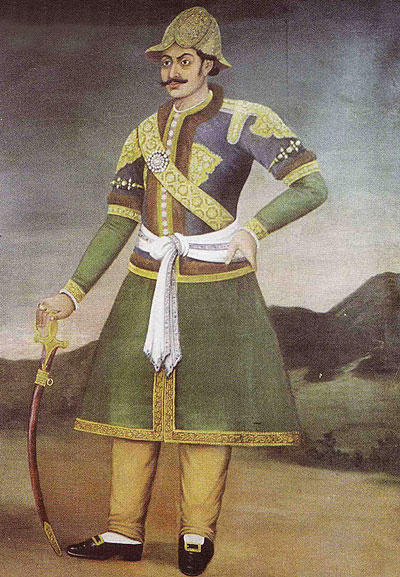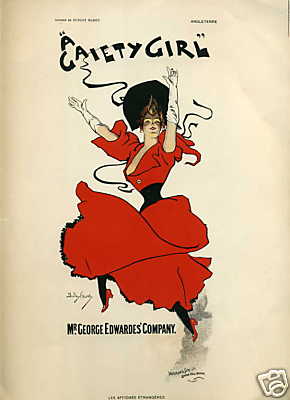|
Nalapanima
Nalapanima is a musical play (Geeti Natak) about the patriotism of a Nepalese soldier during the Battle of Nalapani in 1814 in the Anglo-Nepalese War, fought under the command of Balbhadra Kunwar. Lyrics were written by Bala Krishna ‘Sama’ and music composed by Shiva Shankar. Synopsis A wounded Nepalese soldier sought help from the British camp. He was grateful for the humanitarian help from the British but defied an offer to join British army (Gurkha War). Production The Drama was staged at the Rastriya Nachghar (Nepal). After few years the drama was re-edited by Deepak Jangam and staged again. The show's songs blend traditional Nepalese folk music and more contemporary music. The album also contains some duet songs sung by Narayan Gopal and his mentor Manik Ratna. Songs # Piyo..., piyo: (Narayan Gopal and Manik Ratna) # Ke har khai Ayewu: (Shiva Shankar and Narayan Gopal) # Chora naro: (Kamala Shrestha) # Haye mero pritam: (Kamala Shrestha) # Awu awau relimai: (Manik ... [...More Info...] [...Related Items...] OR: [Wikipedia] [Google] [Baidu] |
Battle Of Nalapani
The Battle of Nalapani was the first battle of the Anglo-Nepalese War of 1814–1816, fought between the forces of the British East India Company and Nepal, then ruled by the House of Gorkha. The battle took place around the Nalapani fort, near Dehradun, which was placed under siege by the British between 31 October and 30 November 1814. The fort's garrison was commanded by Captain Balbhadra Kunwar, while Major-General Robert Rollo Gillespie, who had previously fought in the Battle of Java, was in charge of the attacking British troops. Gillespie was killed on the first day of the siege while rallying his men. Despite considerable odds, both in terms of numbers and firepower, Balbhadra and his 600-strong garrison successfully held out against more than 5,000 British troops for over a month. After two costly and unsuccessful attempts to seize the fort by direct attack, the British changed their approach and sought to force the garrison to surrender by cutting off the fort's exte ... [...More Info...] [...Related Items...] OR: [Wikipedia] [Google] [Baidu] |
Shiva Shankar
Shiva Shankar Manandhar ( ne, शिव शंकर मानन्धर; 22 February 193214 November 2004) was a singer, music composer of Nepali songs and the chief actor in the first Nepali movie, '' Aama''. For nearly a half century beginning from 1950 to late 1990, his name has probably been mentioned more often in books, journals, lectures and conversations about Nepalese music than any other musicians. Singing and composing music for songs of love, tragedy, devotion (bhajan) and patriotism, he pioneered many of the genres of modern Nepali music. He has composed music for around 1,200 Nepalese songs. He himself sang about three hundred songs. For these contributions Shankar received dozens of prestigious national awards. Shankar was recruited to the service of the state-owned Radio Nepal in 1951 by Bal Krishna Sama, the pre-eminent playwright of Nepal. Soon he was tasked with exploring and mentoring new musical talent and overseeing the recording of songs in the studio ... [...More Info...] [...Related Items...] OR: [Wikipedia] [Google] [Baidu] |
Musical Play
Musical theatre is a form of theatrical performance that combines songs, spoken dialogue, acting and dance. The story and emotional content of a musical – humor, pathos, love, anger – are communicated through words, music, movement and technical aspects of the entertainment as an integrated whole. Although musical theatre overlaps with other theatrical forms like opera and dance, it may be distinguished by the equal importance given to the music as compared with the dialogue, movement and other elements. Since the early 20th century, musical theatre stage works have generally been called, simply, musicals. Although music has been a part of dramatic presentations since ancient times, modern Western musical theatre emerged during the 19th century, with many structural elements established by the works of Gilbert and Sullivan in Britain and those of Harrigan and Hart in America. These were followed by the numerous Edwardian musical comedies and the musical theatre work ... [...More Info...] [...Related Items...] OR: [Wikipedia] [Google] [Baidu] |
Nepal
Nepal (; ne, नेपाल ), formerly the Federal Democratic Republic of Nepal ( ne, सङ्घीय लोकतान्त्रिक गणतन्त्र नेपाल ), is a landlocked country in South Asia. It is mainly situated in the Himalayas, but also includes parts of the Indo-Gangetic Plain, bordering the Tibet Autonomous Region of China to the north, and India in the south, east, and west, while it is narrowly separated from Bangladesh by the Siliguri Corridor, and from Bhutan by the Indian state of Sikkim. Nepal has a diverse geography, including fertile plains, subalpine forested hills, and eight of the world's ten tallest mountains, including Mount Everest, the highest point on Earth. Nepal is a multi-ethnic, multi-lingual, multi-religious and multi-cultural state, with Nepali as the official language. Kathmandu is the nation's capital and the largest city. The name "Nepal" is first recorded in texts from the Vedic period of the ... [...More Info...] [...Related Items...] OR: [Wikipedia] [Google] [Baidu] |
Anglo-Nepalese War
The Anglo-Nepalese War (1 November 1814 – 4 March 1816), also known as the Gorkha War, was fought between the Gorkhali army of the Kingdom of Nepal (present-day Nepal) and the British forces of the East India Company (EIC, present-day India). Both sides had ambitious expansion plans for the mountainous north of the Indian subcontinent. The war ended with the signing of the Treaty of Sugauli in 1816 AD, which ceded some Nepalese controlled territory to the EIC. The British war effort was led by the East India Company and supported by a coalition of native states; the Garhwal Kingdom, the Patiala State and the Kingdom of Sikkim against the Kingdom of Gorkha. The Kingdom of Gorkha's war effort was led mostly by the two Thapa families; Thapa dynasty and Family of Amar Singh Thapa. Historical background The Shah era of Nepal began with the Gorkha king Prithvi Narayan Shah invading Kathmandu valley, which consisted of the capital of the Malla confederacy. Until that time ... [...More Info...] [...Related Items...] OR: [Wikipedia] [Google] [Baidu] |
Balbhadra Kunwar
Balbhadra Kunwar Chhetri (30 January 1789 – 13 March 1823) was a Gorkhali military commander and administrator in the Kingdom of Nepal. He is one of the National heroes of Nepal. He was highly praised for his military skill for the defence of Nalapani fort in the Anglo-Nepalese War (1814–1816). He was Captain in the Nepalese military and was tasked as commander to protect the forts of Dehradun.Acharya, Jan. 1971. Name His given name ''Balabhadra'' is the name of ''Baladeva'' ('' Balarama''), the elder brother of '' Krishna''. It is an amalgamation of two words; ''Bala'' () and ''Bhadra'' () Family and early life He was born to father Chandrabir Kunwar, a resident of Bhanwarkot of Panchkhal Municipality in Kavrepalanchowk District. His mother Ambika Devi was a sister of Kaji Ranajor Thapa and daughter of Bada Amar Singh Thapa. His father Chandrabir was son of Jaya Krishna Kunwar and grandson of Ashiram Kunwar. His brother Birabhadra Kunwar was military commander ... [...More Info...] [...Related Items...] OR: [Wikipedia] [Google] [Baidu] |
Gurkha War
The Anglo-Nepalese War (1 November 1814 – 4 March 1816), also known as the Gorkha War, was fought between the Gorkhali army of the Kingdom of Nepal (present-day Nepal) and the British forces of the East India Company (EIC, present-day India). Both sides had ambitious expansion plans for the mountainous north of the Indian subcontinent. The war ended with the signing of the Treaty of Sugauli in 1816 AD, which ceded some Nepalese controlled territory to the EIC. The British war effort was led by the East India Company and supported by a coalition of native states; the Garhwal Kingdom, the Patiala State and the Kingdom of Sikkim against the Kingdom of Gorkha. The Kingdom of Gorkha's war effort was led mostly by the two Thapa families; Thapa dynasty and Family of Amar Singh Thapa. Historical background The Shah era of Nepal began with the Gorkha king Prithvi Narayan Shah invading Kathmandu valley, which consisted of the capital of the Malla confederacy. Until that time o ... [...More Info...] [...Related Items...] OR: [Wikipedia] [Google] [Baidu] |
Narayan Gopal
Narayan Gopal Gurubacharya ( ne, नारायणगोपाल गुरबाचार्य) (4 October 1939 – 5 December 1990), known professionally as Narayan Gopal and N. Gopal was a prominent popular singer and composer of Nepali music. Regarded one of the most significant cultural icons in Nepal, he is referred as "Swar Samrat" (Nepali: स्वर सम्राट, meaning: Emperor of Voice) in Nepal. He is also known as "King of Tragedy" owing to his numerous tragedy songs due to forbidden love with then queen of Nepal . He also sang in Nepal Bhasa. Owing to his vocal range he was capable of singing songs of every Nepalese genre. Often, his songs were accompanied by the sitar, harmonium and flute. He was also a music director during the 1950s to the 70s and belongs to the first generation of professional Nepali singers. His songs have been showcased in several movies and dramas across the country. Narayan Gopal released 137 songs during his lifetime, his first ... [...More Info...] [...Related Items...] OR: [Wikipedia] [Google] [Baidu] |
Musicals Inspired By Real-life Events
Musical theatre is a form of theatrical performance that combines songs, spoken dialogue, acting and dance. The story and emotional content of a musical – humor, pathos, love, anger – are communicated through words, music, movement and technical aspects of the entertainment as an integrated whole. Although musical theatre overlaps with other theatrical forms like opera and dance, it may be distinguished by the equal importance given to the music as compared with the dialogue, movement and other elements. Since the early 20th century, musical theatre stage works have generally been called, simply, musicals. Although music has been a part of dramatic presentations since ancient times, modern Western musical theatre emerged during the 19th century, with many structural elements established by the works of Gilbert and Sullivan in Britain and those of Harrigan and Hart in America. These were followed by the numerous Edwardian musical comedies and the musical theatre wo ... [...More Info...] [...Related Items...] OR: [Wikipedia] [Google] [Baidu] |



